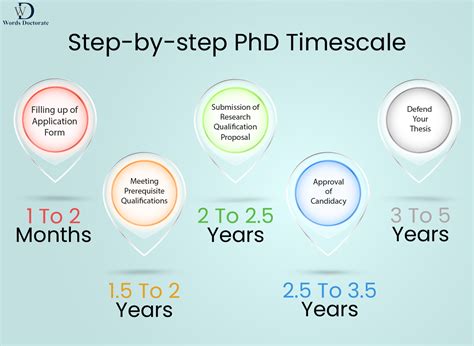Introduction
Are you ready to invest in your future, make a significant contribution to your field of study, and pursue groundbreaking research? Getting into a PhD program is an exciting step towards achieving those goals. The competition is undoubtedly high, but with strategic planning and extraordinary effort, you can increase your chances of success.

Building a Strong Academic Foundation
* Exceptional GPA: PhD programs seek candidates with a strong academic record, typically reflected in a GPA of 3.5 or higher.
* Rigorous Coursework: Focus on courses in your intended field of study and ensure they provide a solid theoretical and methodological foundation.
* Research Experience: Engage in research projects, assist professors with their research, or present your findings at conferences to demonstrate your aptitude for independent investigation.
Crafting a Competitive Application
* Statement of Purpose: Write a compelling statement that showcases your research interests, motivations for pursuing a PhD, and how you align with the program’s goals.
* Letters of Recommendation: Secure strong letters from professors or mentors who can attest to your academic abilities, research potential, and work ethic.
* Writing Sample: Provide a sample of your writing, such as a research paper or thesis, that highlights your analytical skills, writing proficiency, and ability to communicate complex ideas.
* GRE Scores: While not always required, a strong GRE score can enhance your application. Aim for scores in the top 50th percentile or higher.
Securing Funding and Fellowships
* Fellowships: Apply for internal and external fellowships that offer substantial financial support and prestige. These can range from teaching assistantships to full-tuition scholarships.
* Grants: Explore grant opportunities, such as those from the National Science Foundation or private foundations, to support your research.
Additional Factors
* Research Fit: Identify programs whose faculty research interests closely align with your own. This will increase your likelihood of finding a suitable advisor and research project.
* Networking: Attend conferences and engage with faculty in your field to establish connections and learn about potential opportunities.
* Mentorship: Seek guidance from mentors, such as professors or senior researchers, who can provide valuable advice and support throughout your application process.
Common Mistakes to Avoid
- Applying to Too Many Programs: Be selective in your applications, focusing on programs that are a strong fit for your interests and qualifications.
- Neglecting the Personal Statement: Give proper attention to your statement of purpose, ensuring that it is well-written, concise, and clearly conveys your research goals.
- Not Seeking Enough Research Experience: Research experience is crucial for demonstrating your abilities and passion for the field. Seek opportunities to engage in meaningful projects.
- Waiting Until the Last Minute: Start the application process early to give yourself ample time to prepare a strong application.
- Ignoring Financial Considerations: Research fellowship and scholarship opportunities early on to secure funding for your studies.
Step-by-Step Approach
- Introspection: Explore your research interests and identify potential areas of specialization.
- Academic Preparation: Build a strong academic foundation with high GPA, rigorous coursework, and research experience.
- Application Preparation: Craft a compelling personal statement, secure letters of recommendation, and gather necessary documentation.
- Funding Secuirement: Explore fellowships, grants, and other funding opportunities to support your studies.
- Program Selection: Research programs that align with your interests and qualifications.
- Application Submission: Submit your applications according to program deadlines and requirements.
- Interview Preparation: Practice your presentation skills and prepare for potential interview questions.
- Decision and Acceptance: Carefully consider your options and accept the program that best suits your goals and aspirations.
Frequently Asked Questions
1. What is the average acceptance rate for PhD programs?
* According to the Council of Graduate Schools, the average acceptance rate for PhD programs in the United States is 15%.
2. What is the most important factor in getting into a PhD program?
* A strong academic record and research experience are critical factors in the application process.
3. Do I need to secure funding before applying to PhD programs?
* While not always required, securing funding can significantly enhance your application and reduce the financial burden during your studies.
4. How long does it typically take to complete a PhD program?
* The duration of a PhD program varies depending on the field of study and the individual candidate. On average, it takes 5-6 years to complete.
5. What are some unconventional ways to make my application stand out?
* Engage in creative research projects that demonstrate your originality and problem-solving abilities.
* Seek interdisciplinary collaborations to broaden your research perspective.
* Develop a unique research “brand” by establishing an online presence and sharing your research ideas through blogs or social media.
6. How can I overcome a low GPA?
* Highlight your research experience, strong letters of recommendation, and relevant work experience to demonstrate your abilities despite a lower GPA.
* Consider applying to programs that place less emphasis on GPA and more on research potential.
7. What if I don’t get into my dream program?
* Don’t be discouraged. Explore alternative programs, consider reapplying in the future, or pursue research opportunities outside of academia.
8. What support can I expect from my PhD program?
* PhD programs typically provide access to research facilities, mentorship from faculty advisors, and professional development opportunities.
